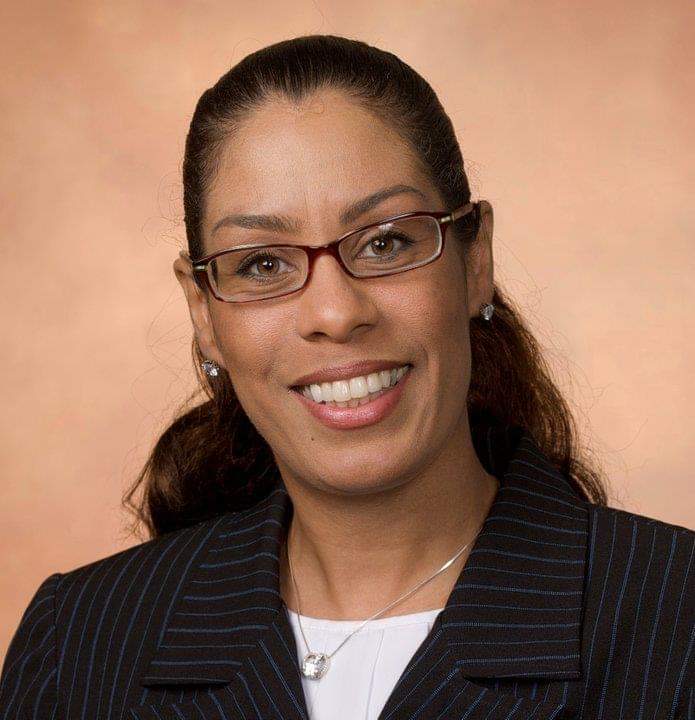
Mrs. Mary J Stine MS ASP – Speaker

Mary J Stine, ASP has a Masters of Science in Occupational Health and Safety. She is an alumnus of UCLA, Pennsylvania State University, Embry-Riddle Aeronautical University and Capella University. Her career experience has been in multiple Industries such as Public Health: mental health awareness and public service education. She has also worked in PSM Chemicals and Manufacturing Building Construction. Her career peaked in Aerospace and Engineering with focuses on Air purification, Fuel Cell Fabrication and oil and Gas Analysis. Her lab experience has been Bio Chem, BSL and Bio-weaponry simulation. Currently she is a Senior Advisor and consultant working with fortune 500 companies on Agriculture, Pharmaceuticals and Business Continuity.
29 April 2021
keynote Session 7: Penetrating safety analysis: The impact of influence on the Global OSH Program
| The impact of influence on the Global OSH Program can make or destroy the company’s brand in the world. Identifying risks and not mitigating them due to lack of skills to influence can lead to catastrophic results. Fatality, Environmental disasters, or media attention due to accidents will undoubtedly mar the reputation of the company for years. As it is said, “Establishing a safety and health culture that leads to superior performance is not only the right thing to door the socially responsible thing to do…It is also the right economic approach. Reducing workplace injuries and illnesses conserves critical resources and improves the use of those critical resources. It saves money, avoids unnecessary costs and ultimately maximizes returns on business”, John Henshaw, Former Assistant Secretary of Labor, OSHA. This presentation shall provide insight into the reasoning behind the need for OSH at all levels of industry, as well as the main issues with communicating the points to be effective to leadership. This will enable the technical specialist or the Director to articulate effectively and use proper tools to align the goals of the C-Suite with the OSH agenda. |
29 April 2021
keynote Session 7 Q & A
Debate
30 April 2021
keynote Session 10: THE NEUROSCIENCE OF THE BRAIN ON STORYTELLING: WHO PUT THIS CHAIR HERE? NOT MY CHAIR,NOT MY PROBLEM
| Who put that chair here? Not my chair, not my problem How many times have you worked with an employee who does not believe he has to take ownership or accountability for tasks? The internet is full of memes of all walks of life removing litter from highways even if it is not their job. This is to make a point that we all can learn from putting in the extra effort to complete a task. This module is taken from the hilarious conversation of a person who is apparently under the influence of some delusions of grandeur. In “Drinking Out of Cups” a spoken word song from electronic artist Dan Deacon, this narrator rants about life and his perspective of everything that someone does and how it does or does not affect him. This becomes a distorted allegory which is matched with visual clues to drive the listening into the web of confusion. This conversation style is what will captivate your audience. Even if you are on a short time schedule or in a position where you cannot seem to prioritize a break, if someone were to tell you a story in this manner, you would stop and listen. This class will enable the listener to pick up visual cues on the listening attention span, understand what to say in this or that culture and what to do to get your point across. The intent to is make the message unforgettable. The purpose of this class is to use tools to build morale, improve bonds and to open lines of communication. After the class, the learner will have stories that are appropriate to relieve stress or explain with allegorical wisdom how to manage the event. |
30 April 2021
keynote Session 10 Q & A
Debate
6 October 2020
keynote Session 6: The Future Of Safety : How You Influence It - The Adaptation Of The Human To Technology
The future of safety begins now and appears to obsolete the worker. Technology will be the leading indicator. As companies move toward efficiency, corporate production lines and transportation shall be augmented with autonomous equipment. Energy production is moving away from natural resources and Food sources are becoming altered. Moreover, management systems are being developed with extraordinarily little interface with humans.
Observing accident trends and subsequent technological advancements from 2012-2020, the data shows the potential outcome of advantages to reducing workplace injury, making the human more efficient, or identifying a system without their interaction.
The recent changes to corporate compliance and regulatory legislature are conflicting, focusing more on the ecosystems and environmental stability rather than the education and support of the worker. To reduce the environmental footprint and liability, most assignments will be remote or outsourced. Those which are manual or require human interface can become more dangerous with less oversight and safety management.
The future of safety begins and ends with the worker. The worker is the ultimate indicator of the future of safety. It is imperative to be a strident advocate in actions supporting that change and working together to sustain that directive. The pursuance of personal life management and safe work practice will be essential to adopting safe work skills. The potential for assimilation into the new world of work will be based on how much the current management system can be modified and how much of it will be hybridized to suit the worker.
6 October 2020

